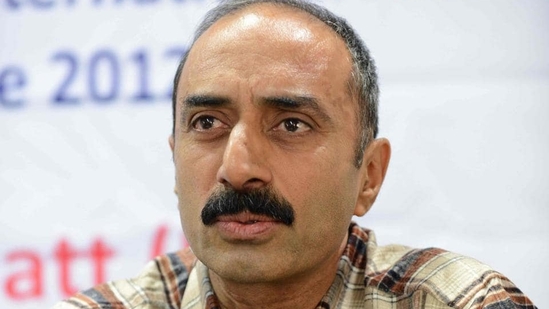The Supreme Court has turned down the bail request of former IPS officer Sanjiv Bhatt, currently imprisoned for life over his involvement in a custodial death incident that took place over three decades ago in Gujarat. However, the top court has directed that his appeal be heard with priority.
The case originates from 1990 when Bhatt was serving as the Additional Superintendent of Police in Jamnagar. During a bout of communal violence that followed a bandh in response to the arrest of BJP leader L.K. Advani, Bhatt oversaw the detention of over 130 individuals under the stringent TADA Act. Among those detained was Prabhudas Vaishnani, who died days after his release from custody.
Bhatt was Imprisoned in 2019
A sessions court in Jamnagar sentenced Bhatt to life imprisonment in 2019 after finding him guilty of custodial assault and murder, along with two other police officers. The Gujarat High Court, in January 2024, upheld the convictions and the sentences, dismissing the appeal filed by Bhatt and his co-accused.
In the Supreme Court, Bhatt sought relief through bail and the suspension of his sentence, claiming that there was no medical evidence directly linking the alleged police abuse to Vaishnani’s death. Despite these arguments, the bench comprising Justices Vikram Nath and Sandeep Mehta rejected his plea. They clarified that their observations were restricted to the bail proceedings and would not influence the final decision in the pending appeal.
The court remarked, “We are not inclined to enlarge the appellant Sanjiv Bhatt on bail,” while directing the judicial process around his appeal to move forward without delay.
Why Bhatt is Behind Bars?
The origins of the case stretch back to a police complaint filed by the victim’s brother, which led to an investigation by the state CID. Initially, the Gujarat government refused to grant prosecution sanction against Bhatt, and a closure report was filed. However, the trial court rejected this in 1995, initiating criminal proceedings against him.
After Bhatt’s testimony before inquiry commissions probing the 2002 Gujarat riots, government protection extended to him was revoked. This marked a turning point, as the legal machinery then accelerated the charges against him.
Bhatt’s legal history is extensive. In March 2024, he was handed a 20-year sentence by a court in Banaskantha district in connection with a 1996 case where he was found guilty of fabricating evidence by planting drugs to falsely implicate a Rajasthan-based lawyer. His appeal in that matter remains undecided before the Gujarat High Court.
When Did Bhatt Come Into the Limelight?
In contrast, Bhatt received relief in December 2024, when a magistrate’s court acquitted him in a separate 1997 custodial torture case, citing insufficient proof presented by the prosecution.
Notably, Bhatt became a nationally recognised figure when he accused then Gujarat Chief Minister Narendra Modi of complicity in the 2002 riots. His claims were later investigated and rejected by a Special Investigation Team. Since then, Bhatt has remained a controversial figure, often caught in the crossfire of legal and political scrutiny.
With the Supreme Court now expediting the appeal process, Bhatt’s legal journey appears far from over. His conviction under Sections 302 (murder), 323 (voluntarily causing hurt), and 506 (criminal intimidation) of the Indian Penal Code continues to hold, pending the top court’s final verdict.


